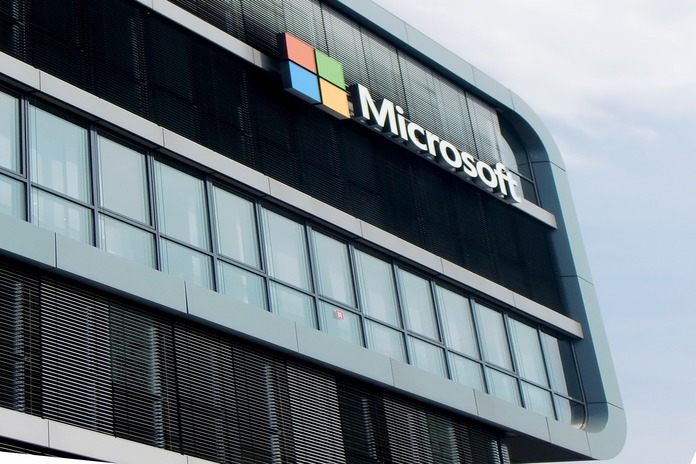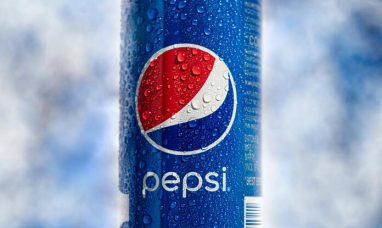Microsoft (NASDAQ:MSFT) has taken a significant step in addressing the massive energy needs of its data centers by signing a deal with Constellation Energy (NASDAQ:CEG) to source nuclear power. As artificial intelligence (AI) continues to grow in importance, the energy required to run data centers has surged, making reliable and carbon-free power essential for tech giants like Microsoft. This partnership aims to provide the sustainable energy needed for the future of AI technology.
Powering AI with Nuclear Energy
On Friday, Microsoft signed a deal with Constellation Energy to purchase power from the company’s Three Mile Island Unit 1 nuclear plant. Located in Pennsylvania, this reactor has the potential to generate 835 megawatts of carbon-free energy once it is revived by 2028. Microsoft’s decision to partner with Constellation is part of a broader strategy to ensure a reliable, sustainable energy source for its AI data centers, which consume vast amounts of electricity.
Data centers are critical to training AI models, but they also require immense power to function effectively. According to Bloomberg, big tech data centers could consume a combined 508 terawatt hours of electricity per year if they run constantly—a figure that surpasses the total electricity produced in countries like Australia. This immense demand for energy is pushing companies like Microsoft to seek long-term solutions like nuclear power, which offers consistent, carbon-free energy.
Three Mile Island’s Revival
The Three Mile Island Unit 1 plant, which shut down in 2019 due to dwindling demand for nuclear energy, will now undergo a $1.6 billion revival plan led by Constellation Energy. Pending regulatory approval, the plant is expected to be operational again by 2028. Once restored, the plant will be renamed the Crane Clean Energy Center (CCEC), in honor of Constellation’s late CEO, Chris Crane.
This move to restore Unit 1 comes with significant economic benefits for Pennsylvania. An economic report commissioned by the Pennsylvania Building & Construction Trades Council estimates that the Crane Clean Energy Center will create 3,400 direct and indirect jobs, contribute $16 billion to Pennsylvania’s GDP, and generate over $3 billion in state and federal taxes.
Microsoft’s decision to purchase all of the power generated by the revived reactor over the next 20 years underscores the tech giant’s commitment to using clean energy for its data centers. This deal also aligns with Microsoft’s broader goal of running all of its data centers entirely on green energy by 2030, though the company acknowledged in May that its aggressive AI push may challenge its ability to meet that deadline.
The Role of Nuclear Energy in the AI Revolution
The demand for clean, reliable energy extends beyond data centers. Electric vehicles, factories, and other industries are increasingly dependent on a steady flow of electricity, making nuclear power an attractive option for tech companies like Microsoft. Nuclear power is the only carbon-free energy source capable of providing consistent electricity around the clock, which is essential for data centers that operate continuously.
Microsoft’s nuclear energy deal is part of a larger trend among big tech companies. Amazon (NASDAQ:AMZN) purchased a nuclear-powered data center in Pennsylvania for $650 million earlier this year, and Alphabet (NASDAQ:GOOGL) has also shown interest in using nuclear energy to power its operations. OpenAI’s CEO, Sam Altman, has emphasized the need for an energy breakthrough powered by nuclear technology to meet the growing demands of AI.
As renewable energy sources like wind and solar are limited by weather conditions, nuclear energy offers a reliable alternative that can meet the 24/7 demands of AI systems. This has also fueled investor interest in nuclear fusion startups, which have raised over $7.1 billion to date. Fusion represents the future of nuclear energy, as it uses hydrogen—a more abundant and cleaner fuel source—unlike traditional nuclear plants that rely on uranium and plutonium.
Conclusion: Microsoft’s Bold Move Toward a Clean Energy Future
Microsoft’s partnership with Constellation Energy marks a significant shift toward sustainable power solutions for AI data centers. By relying on nuclear energy, Microsoft is not only addressing the growing energy needs of its AI infrastructure but also positioning itself as a leader in the shift to green technology.
With the revival of the Three Mile Island Unit 1 reactor, Microsoft is securing a long-term, carbon-free power source that aligns with its ambitious goal of powering all data centers with green energy by 2030. As the AI revolution continues to grow, nuclear energy will likely play a central role in ensuring that tech companies can meet their energy needs while minimizing their environmental impact.
Featured Image: Pixabay©efes








